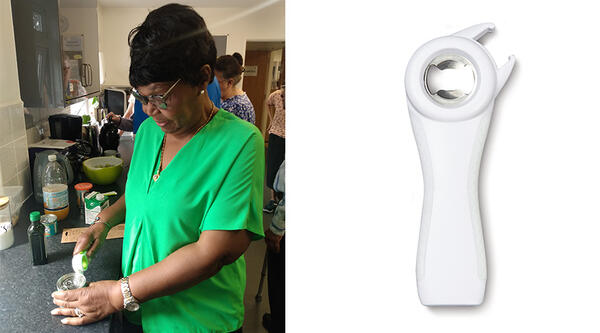Appetite and dementia
There are many reasons why a person with dementia may experience a change in their relationship with food. Some may lose interest in meals and seem to have reduced appetite, while others become anxious about not eating enough.
Eating and drinking
- Eating and drinking
- You are here: Appetite and dementia
- Drinking, hydration and dementia
- Changes in eating habits and food preference
- Supporting someone with dementia to eat and drink
How can dementia affect a person's appetite?
Some people with dementia lose interest in food, while other people may eat too much or too often. They may have forgotten that they’ve recently eaten, or worry about when the next meal is coming.
Jump to overeating and dementia
Poor appetite and stopping eating
A person with dementia may lose interest in food. They may refuse to eat it or spit it out. The person may become angry or distressed, or behave in a challenging way during mealtimes.
If someone isn’t eating enough, it can lead to weight loss and less muscle strength. They may also feel tired and weak. This can make them frailer and less able to recover from infections or viruses.
If you’re concerned about someone who continues to refuse to eat, speak to a pharmacist or the GP
Why someone with dementia might stop eating
A person may lose interest in, or turn down, food and drink because of physical difficulties, such as problems with chewing and swallowing, or constipation.
There are other reasons why a person may stop eating. Understanding the reason can help you find appropriate support and solutions.
Depression
Loss of appetite can be a sign of depression - a common in people with dementia. There are effective treatments for depression, including medication and other therapies. If you suspect that the person you are caring for has depression, talk to the GP
Communication barriers
The person may have problems communicating that they’re hungry, that they don’t like the food they have been given or that the food is too hot. They may be unsure what to do with the food. They may communicate their needs through their behaviour,
such as refusing to eat or holding food in their mouth.
You could try giving them a choice of food, or use prompts and pictures so they can choose the food they would like.Pain
The person may be in pain or discomfort, which can make eating difficult. They may have problems with their dentures, sore gums or painful teeth. Going to the dentist for oral hygiene and regular mouth checks is important.
Tiredness and concentration
Tiredness can cause people with dementia to not eat or to give up partway through a meal. It can also lead to other difficulties, such as problems with concentration or with coordination. A person with dementia may have difficulties focusing on a meal all the way through. Try to support the person to eat when they are most alert.
Medication
Changes to medication or dosage can affect a person’s appetite. If you think this may be the case, speak to a pharmacist or the GP.
Physical activity
If the person is not very active during the day, they may not feel hungry. Encouraging them to be active will be good for their wellbeing and may increase their appetite.
Equally, if the person is very active or restless – for example, walking about or fidgeting – they may use extra calories and may be hungrier than usual or lose weight more quickly.
What can you do to help?
There are lots of ways to increase a person’s appetite and interest in food and drink. Knowing the person and their life history helps,
as everyone has their own needs, routines, likes and dislikes.
Overeating and dementia
Some people with dementia may eat too much or too often. They may have forgotten that they’ve recently eaten, or worry about when the next meal is coming.
If a person is overeating, they may also eat foods that their doctor has told them to avoid. They might frequently ask about or search for food. This can be stressful for them and the people around them.
Certain types of dementia, such as frontotemporal dementia, may be more likely to cause overeating and other changes to eating behaviour. These may include changes in dietary preference and obsession with particular foods.
- Make sure the person has something to do, so they don’t feel bored or lonely, which may lead to ‘comfort eating’.
- Consider the person’s life history. If there have been times when they haven’t known when the next meal is coming, they may need reassurance that they don’t need to overeat.
- Divide the original portion into two and offer the second one if the person asks for more.
- Fill most of the plate with salad or vegetables.
- Make sure the person is well hydrated as they may be mistaking thirst for hunger. Offer them a drink with their meal.
- Leave bite-sized fruit or healthy snacks, such as chopped bananas, orange segments or grapes, within reach for the person to snack on when they want to.
- Offer the person a low-calorie drink instead of more food. Consider not having certain foods in the house, or substituting them with low-fat or low-calorie versions.
- If the person has developed a strong preference for particular foods and is not eating enough of other foods, or if they are struggling with excess weight gain, ask the GP for a referral to a dietitian.









Here are some ideas that may help: